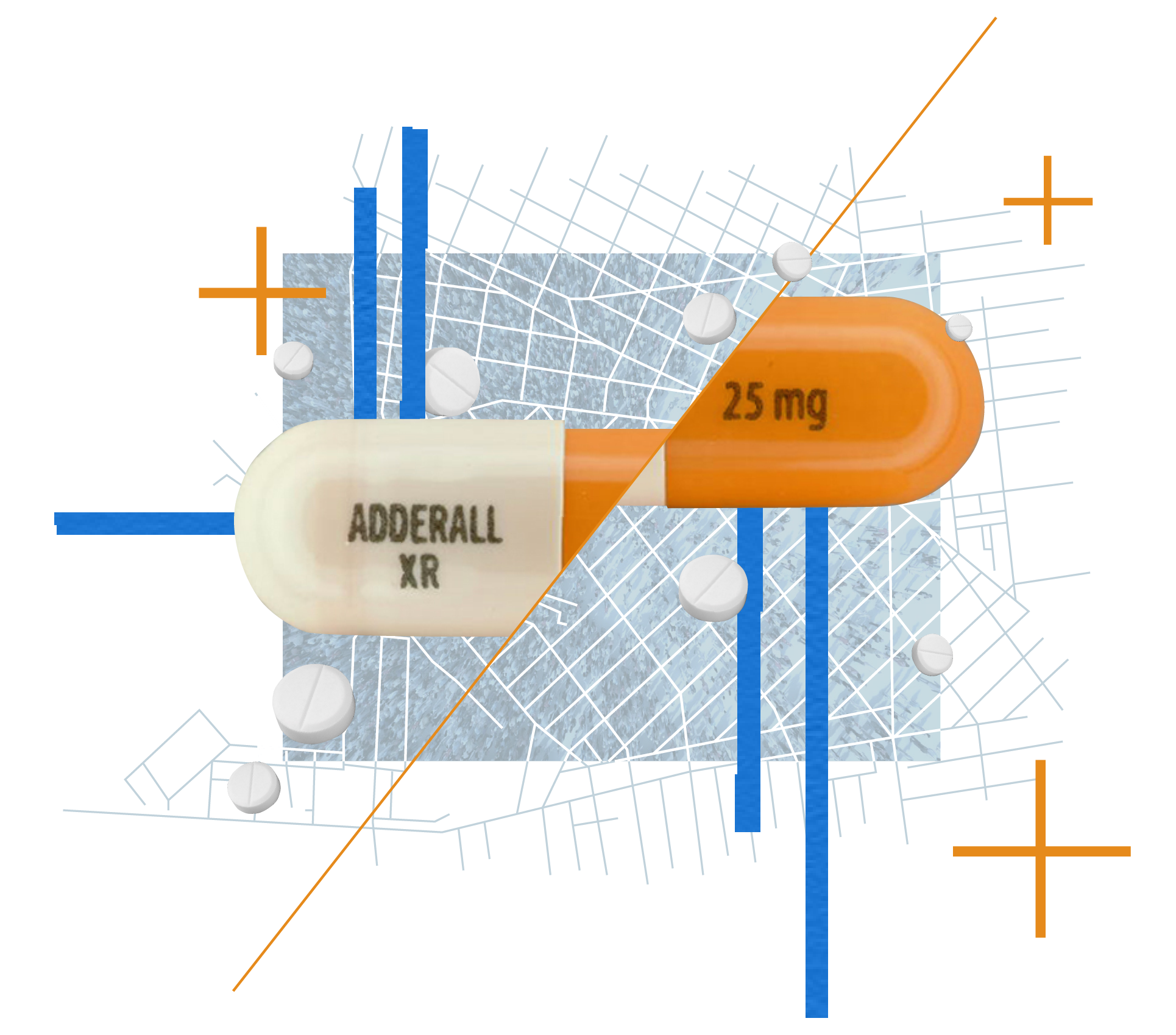This article appears in our October print issue.You can pick up a copy on newsstands around campus, or at our newsroom in room 520 in the University Center.
______________________________________________________________________________
Sammi Fisher is the Editor-in-Chief of the New School Free Press
I was officially diagnosed with Inattentive Attention Deficit Hyperactivity Disorder the summer after my freshman year of college. Although I was expecting the diagnosis, it felt good to have some answers for my troubles.
I had just started therapy sessions over the phone with a counselor back home in Florida. I loved all my classes but it was so hard for me to focus. Short simple tasks didn’t get finished, emails were never sent, and I’d forget things easily. Completing homework took hours and hours and was really hard, even if it wasn’t a long assignment.
Many college students have started taking Adderall and other study drugs like Concerta to stay focused and efficient in schoolwork, but many of these students have no medical problem focusing in the first place. They just want liquid speed. The National Survey on Drug Use and Health (NSDUH) estimates that nearly 6.5 million Americans over the age of 12 have used methylphenidate, the medication commonly used to treat ADHD, for non-medical uses in their lifetime.
Another national study of 10,000 students found that approximately 7 percent had abused “study drugs,” although the percentage varied at different colleges. That’s an alarming amount of students. During my time in college, I’ve seen friends — who definitely don’t need it — purchase ADHD medication at a premium price. I’ve seen people crush the little blue pills and snort them so that they “get in your system faster.”
“It feels horrible trying to convince doctors that your medical needs are real.”
The problem with students buying Adderall for $5 a pill from a friend or a dealer is that it changes the perception of those who struggle with ADHD, especially from doctors and other medical professionals. If I go to a doctor regarding my ADHD, they are instantly skeptical. They’re skeptical that I’m just another student looking to abuse the drug. It feels horrible trying to convince doctors that your medical needs are real.
I didn’t see a psychiatrist until I went back home to Florida for the summer. To officially diagnose someone with ADHD, they ask if certain symptoms have been there since childhood and boy, they absolutely have been. I always just thought it was just how I was. My mom would find six year old me staring at myself in the mirror 20 minutes after she told me to get dressed to get ready to go. I would leave cabinets open and I had zero directional skills, just to name a few.
I left that doctor’s appointment with a prescription for Concerta, but I quickly found that the side effects weren’t worth the increased focus. I couldn’t sleep, I was never hungry and I was experiencing the worst anxiety I had ever felt. It was the type of anxiety that makes it hard to cross the street.
I stopped taking the drug, but soon learned that it wasn’t even possible for me to get new medications while I was attending college in Manhattan. Stimulants like Concerta and Adderall can’t be filled or prescribed by doctors across state lines. If I wanted to try a different medication I would have to go through the whole process of finding a psychiatrist in New York City. I just don’t have the time or the money for that process.
So I went to Student Health Services at the New School. They were supposed to get back to me quickly with a recommendation for a psychiatrist that could help me, but months passed and I never heard from them. They were skeptical of my eligibility for “study drugs.” I tried finding other psychiatrists but the ones I talked to were booked months in advance. The ones who had openings charged hundreds of dollars for the first consultation.
This skepticism from doctors and these long procedures to get medication I need comes back to the sheer amount of people using them for a boost, not to simply even the playing field. College students pop one Adderall thinking that the pill will help them do better on their test, and they might not even have intentions to take another. Unfortunately, a lot of the time, that dopamine rush has them coming back for more.
“No one means to get addicted. But there’s such a casual use of something like Adderall nowadays — because it’s seen as benign, or a help to becoming more productive. And in our culture, to be productive is kind of everything. There’s a tremendous pressure not just to do well but to excel,” said Jeanette Friedman, a social worker with a specialty in addiction, in a 2016 NY Times article.
This pressure, clearly, has extended to valuing success over health and well being on college campuses. It’s hard enough to figure out the right medication for those of us who need it just to be functional. It’s even more frustrating when there are extra roadblocks because everyone wants those drugs, whether they need them or not. I hope that going forward, people will think twice about how their recreational drug use affects those who really need it.
Sammi Fisher is the former Editor-in-Cheif & Senior Editor of the New School Free Press. Prior, she spent a year as the Arts & Culture Editor.







